BYD Seal vs Jeep Compass – Which car suits you better?
Both models have their strengths – but which one suits you more?
Compare performance, efficiency, price and space directly: BYD Seal or Jeep Compass?
Costs and Efficiency:
Price and efficiency are key factors when choosing a car – and this is often where the real differences emerge.
Jeep Compass has a slightly advantage in terms of price – it starts at 34200 £, while the BYD Seal costs 40300 £. That’s a price difference of around 6077 £.
In terms of energy consumption, the advantage goes to the BYD Seal: with 15.40 kWh per 100 km, it’s slightly more efficient than the Jeep Compass with 17.50 kWh. That’s a difference of about 2.10 kWh.
As for range, the BYD Seal performs slightly better – achieving up to 570 km, about 70 km more than the Jeep Compass.
Engine and Performance:
Under the bonnet, it becomes clear which model is tuned for sportiness and which one takes the lead when you hit the accelerator.
When it comes to engine power, the BYD Seal has a clearly edge – offering 530 HP compared to 240 HP. That’s roughly 290 HP more horsepower.
In acceleration from 0 to 100 km/h, the BYD Seal is convincingly quicker – completing the sprint in 3.80 s, while the Jeep Compass takes 7.30 s. That’s about 3.50 s faster.
In terms of top speed, the BYD Seal performs barely noticeable better – reaching 220 km/h, while the Jeep Compass tops out at 200 km/h. The difference is around 20 km/h.
There’s also a difference in torque: BYD Seal pulls decisively stronger with 670 Nm compared to 345 Nm. That’s about 325 Nm difference.
Space and Everyday Use:
Cabin size, boot volume and payload all play a role in everyday practicality. Here, comfort and flexibility make the difference.
Both vehicles offer seating for 5 people.
In curb weight, Jeep Compass is noticeable lighter – 1575 kg compared to 1907 kg. The difference is around 332 kg.
In terms of boot space, the Jeep Compass offers clearly perceptible more room – 550 L compared to 400 L. That’s a difference of about 150 L.
When it comes to payload, BYD Seal slight takes the win – 473 kg compared to 470 kg. That’s a difference of about 3 kg.
Who wins the race?
The BYD Seal proves to be leaves the rival little chance and therefore becomes our DriveDuel Champion!
BYD Seal is the better all-rounder in this comparison.
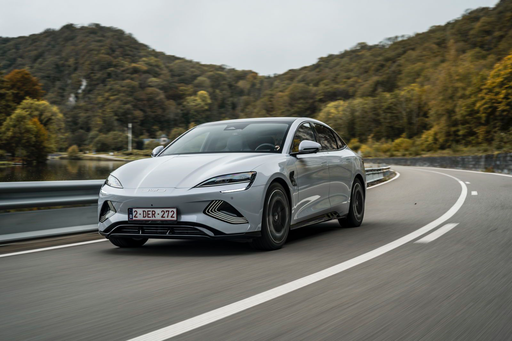
BYD Seal
BYD Seal
The BYD Seal represents a sleek fusion of innovative technology and stylish design, setting it apart in the competitive electric vehicle market. With its aerodynamic silhouette and premium interior finishes, the car offers a driving experience that is both comfortable and exhilarating. Enthusiasts are particularly impressed by the seamless integration of advanced features that prioritise safety and convenience.
details @ press.bydauto.be
@ press.bydauto.be
 @ press.bydauto.be
@ press.bydauto.be
 @ press.bydauto.be
@ press.bydauto.be
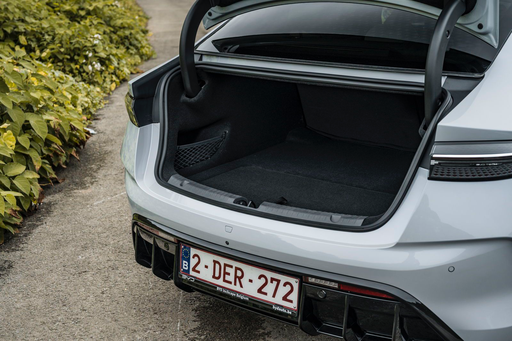 @ press.bydauto.be
@ press.bydauto.be
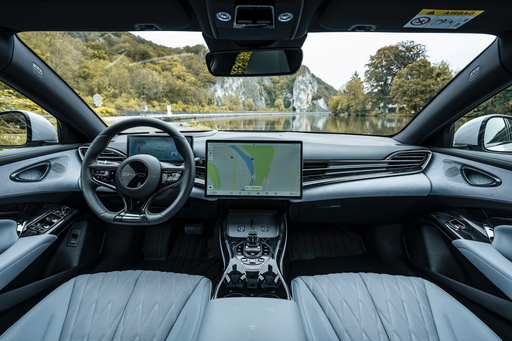 @ press.bydauto.be
@ press.bydauto.be
Jeep Compass
The Jeep Compass combines a rugged aesthetic with modern sophistication, making it a standout choice in the compact SUV segment. Its robust design is complemented by a comfortable interior that offers ample space and cutting-edge technology for a seamless driving experience. Whether tackling urban environments or venturing off-road, the Compass provides versatility and reliability, embodying the adventurous spirit synonymous with the Jeep brand.
details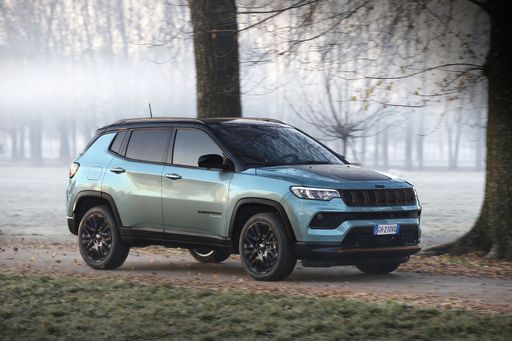 @ media.stellantis.com
@ media.stellantis.com
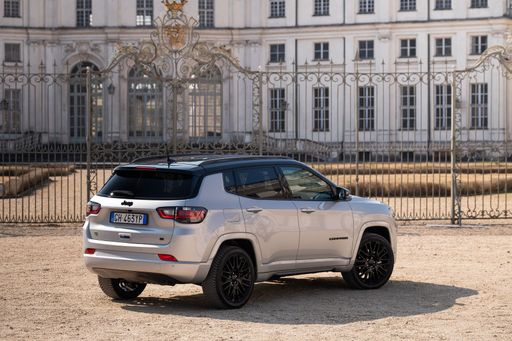 @ media.stellantis.com
@ media.stellantis.com
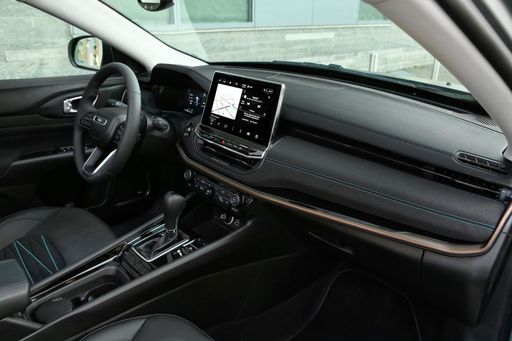 @ media.stellantis.com
@ media.stellantis.com
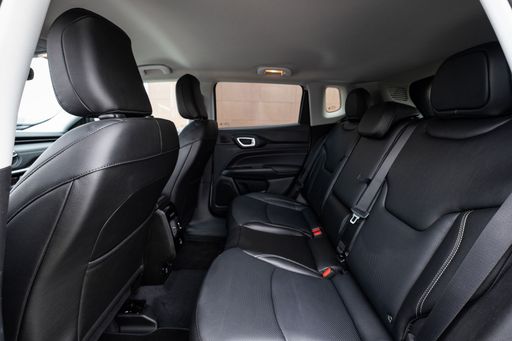 @ media.stellantis.com
@ media.stellantis.com
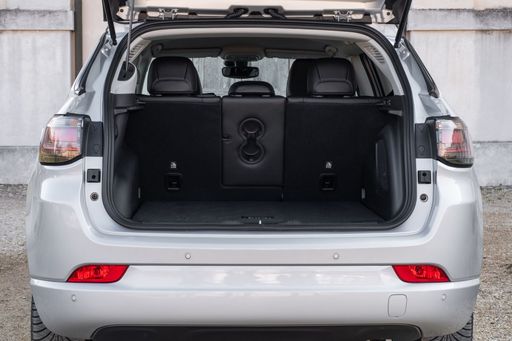 @ media.stellantis.com
@ media.stellantis.com

|

|
|
|
|
Costs and Consumption |
|
|---|---|
|
Price
40300 - 45400 £
|
Price
34200 - 46900 £
|
|
Consumption L/100km
-
|
Consumption L/100km
2 - 5.9 L
|
|
Consumption kWh/100km
15.4 - 18.2 kWh
|
Consumption kWh/100km
17.50 kWh
|
|
Electric Range
460 - 570 km
|
Electric Range
36 - 500 km
|
|
Battery Capacity
-
|
Battery Capacity
74 kWh
|
|
co2
0 g/km
|
co2
0 - 133 g/km
|
|
Fuel tank capacity
-
|
Fuel tank capacity
36 - 55 L
|
Dimensions and Body |
|
|---|---|
|
Body Type
Sedan
|
Body Type
SUV
|
|
Seats
5
|
Seats
5
|
|
Doors
4
|
Doors
5
|
|
Curb weight
1907 - 2185 kg
|
Curb weight
1575 - 2198 kg
|
|
Trunk capacity
400 L
|
Trunk capacity
420 - 550 L
|
|
Length
4800 mm
|
Length
4404 - 4552 mm
|
|
Width
1875 mm
|
Width
1819 mm
|
|
Height
1460 mm
|
Height
1629 - 1675 mm
|
|
Max trunk capacity
-
|
Max trunk capacity
1230 - 1387 L
|
|
Payload
446 - 473 kg
|
Payload
465 - 470 kg
|
Engine and Performance |
|
|---|---|
|
Engine Type
Electric
|
Engine Type
Petrol MHEV, Plugin Hybrid, Electric
|
|
Transmission
Automatic
|
Transmission
Automatic
|
|
Transmission Detail
Reduction Gearbox
|
Transmission Detail
Dual-Clutch Automatic, Automatic Gearbox, Reduction Gearbox
|
|
Drive Type
Rear-Wheel Drive, All-Wheel Drive
|
Drive Type
Front-Wheel Drive, All-Wheel Drive
|
|
Power HP
231 - 530 HP
|
Power HP
130 - 240 HP
|
|
Acceleration 0-100km/h
3.8 - 7.5 s
|
Acceleration 0-100km/h
7.3 - 10.3 s
|
|
Max Speed
180 - 220 km/h
|
Max Speed
180 - 200 km/h
|
|
Torque
360 - 670 Nm
|
Torque
230 - 345 Nm
|
|
Number of Cylinders
-
|
Number of Cylinders
4
|
|
Power kW
170 - 390 kW
|
Power kW
96 - 177 kW
|
|
Engine capacity
-
|
Engine capacity
1199 - 1469 cm3
|
General |
|
|---|---|
|
Model Year
2023 - 2025
|
Model Year
2024 - 2025
|
|
CO2 Efficiency Class
A
|
CO2 Efficiency Class
D, B, A
|
|
Brand
BYD
|
Brand
Jeep
|
What drive types are available for the BYD Seal?
The BYD Seal is available as Rear-Wheel Drive or All-Wheel Drive.
The prices and data displayed are estimates based on German list prices and may vary by country. This information is not legally binding.
